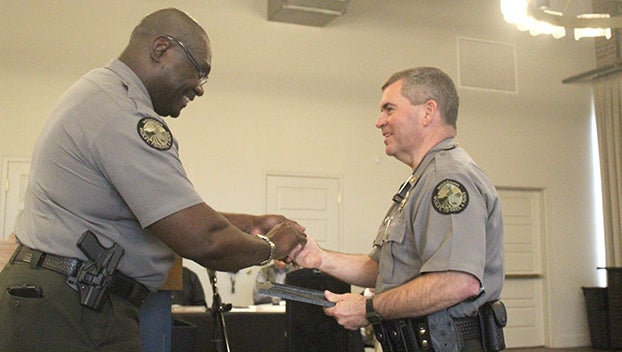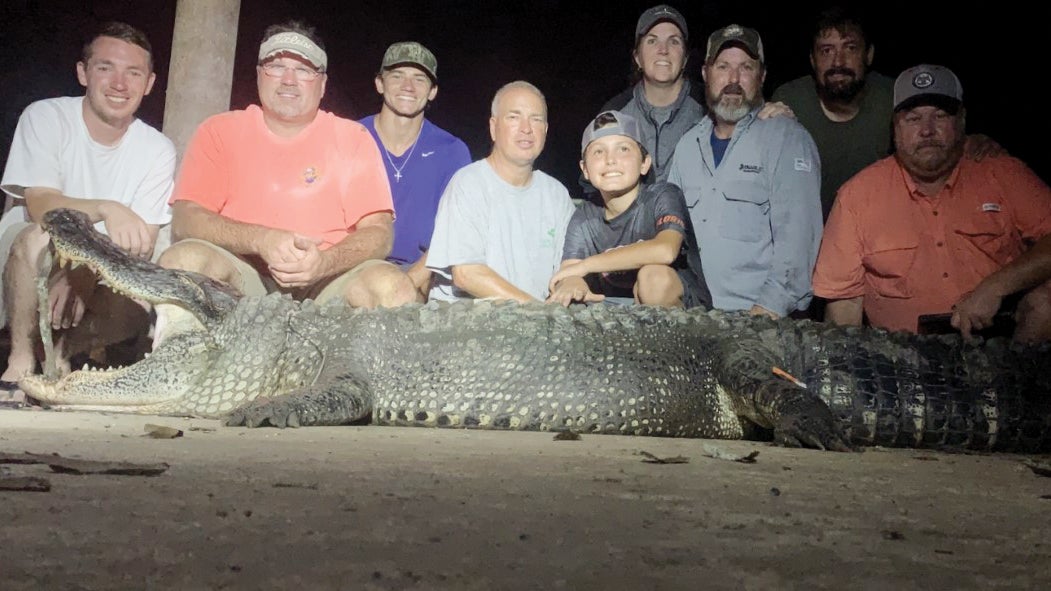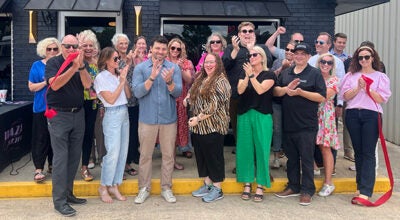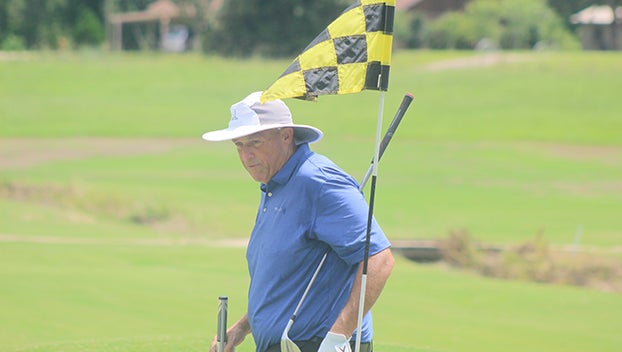Mississippi’s former Alligator Man asks commission to consider a few ideas
Published 3:14 pm Friday, March 22, 2024

- Left, Col. Jerry Carter, chief of law enforcement, awards a certificate to Ricky Flynt recognizing his 29 years and seven months of service with the Mississippi Department of Wildlife, Fisheries and Parks. Flynt has led the Alligator Program since 2003 and will take on a Project Manager Role with the Mississippi Outdoor Stewardship Trust Fund in February. (Hunter Cloud | The Daily Leader)
MCCOMB — The first statement out of Ricky Flynt’s mouth was that he was at the Mississippi Department of Wildlife, Fisheries and Parks Commission Meeting Thursday morning as a license holder. His public comments were on behalf of himself and not the Mississippi Outdoor Stewardship Trust Fund where he serves as the project manager.
Commissioners should be familiar with Flynt. He was Mississippi’s alligator program director for 20 years and announced his retirement at the January 2023 Commission meeting in Cleveland.
Flynt said in his last message as the alligator man that “All recommendations I gave came as a biologist with a skeptical approach. We are here for the resource first and the hunting public second.”
Flynt said he listened to the educational session about the risks of supplemental feeding when it comes to disease management and unnatural congregation of animals. He said he wanted to make a couple of points for the commission to consider in regards to feeding.
First, he wanted to make it clear that the prions which transmit Chronic Wasting Disease are known to be found in the soil, feeders and scrapes. While people are unable to eliminate environmental contamination, they can control mechanisms that enhance risk.
“We can control the placement of feeding stations. Particularly with the areas of the state where we know there are CWD positives. Take those feeding stations away because we can control it,” Flynt said. “I have other ideas about what can be done. We know from science that these feeding stations can be vectors and that is one thing we can take off of the landscape. We also need to restore the CWD management plan back to the original plan. Particularly in regards to how the zones are implemented and the feeding ban as they pertain to these new areas.”
Commissioners have slowly chiseled away at the MDWFP CWD management plan with arbitrary determinations of what part of counties go in the CWD zone despite scientific best practices and recommendations of wildlife staff.
In 2022, the commission voted to revise the CWD management plan to include all counties within 10 miles of a confirmed positive which was decreased from a 25 mile radius. The commission deemed the Mississippi River was a significant barrier to prevent CWD from spreading to Claiborne County. MDWFP confirmed a positive was detected in Claiborne County in January 2024.
At the June 2023 commission meeting, Gary Rhodes motioned for a change which allowed CWD zones to be delineated using roads and highways at or close to 10 miles from the positive in addition to county lines.
Flynt is not the first outdoorsmen to ask the commission to manage CWD using the initial plan. Claiborne County landowner Ed Penny called upon the commission several times to reinstate the feed ban in Claiborne County after Commissioner Leonard Bentz got a motion passed to change the CWD zone. Penny’s comments did not spark any change or action.
Restoring tradition
Flynt made another argument in his public comment about the concept of supplemental feeding. He said one problem he has with feeding or baiting is the fact the practice is a degradation to the tradition of hunting. Research conducted at MSU estimates there are 118,000 feeders across the state or one feeder per 13 deer.
“I do believe this is very problematic for the hunting public,” Flynt said.
He pointed to a quote that Robert Brown, a former department head at MSU’s College of Forest Resources, once used in a paper of his. Brown was the former president of the wildlife society and went to Texas A&M in 1997.
Brown had quoted philosopher Jose Ortega from his book titled Meditations on hunting.
Flynt shared Ortega’s quote “One does not hunt to kill. One kills to have been hunting. We continue to hunt although it is no longer necessary to hunt. To reassure us of who we are. The essence of hunting is to put our senses, knowledge, experience and abilities against a wild animal. Hunting is a contest of confrontation between two sets of instincts.”





